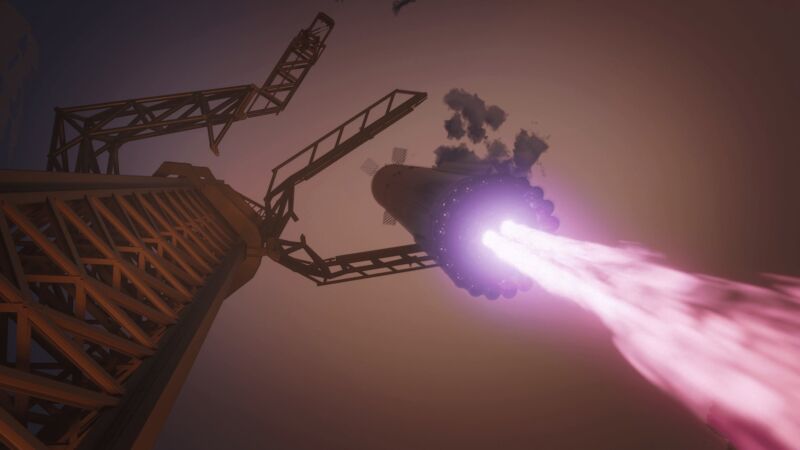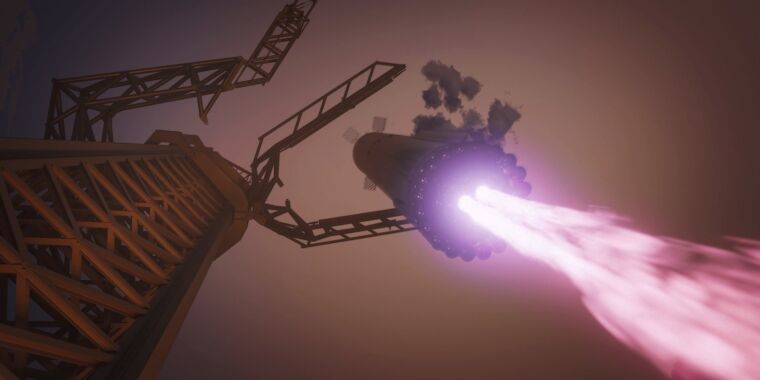
The Federal Aviation Administration has told SpaceX it will not approve a launch license for the next test flight of its Starship rocket until late November, the company said in a statement Tuesday.
That’s more than two months later than the mid-September timeframe the FAA had previously planned for determining whether to approve a launch license for the next Starship flight. SpaceX says the Super Heavy booster and Starship upper stage for the next launch, the fifth full test flight of the Starship program, have been ready for launch since the first week of August.
“The flight test represents our most ambitious goal yet: attempting to return the Super Heavy booster to the launch site and recover it in mid-air,” SpaceX said in a statement.
“Environmental regulations and restrictions serve a noble purpose, arising from common sense safeguards to enable progress while preventing unnecessary impacts on the environment,” SpaceX said. “But by extending the permitting process for Flight 5, we are being delayed for unreasonable and vexatious reasons.”
Wait quickly
In recent weeks, engineers at the Starship launch site in South Texas have been further improving the launch pad structure to make the capture possible. The Super Heavy booster, as long and wide as a Boeing 747 jumbo jet, will descend vertically under the power of its Raptor engines and slow to a near-hover position, allowing two mechanical catch arms to close in and capture the stainless steel booster above the launch mount.
This is the first time SpaceX has attempted a mid-air catch of a rocket. Like the Falcon 9 first stage, the Super Heavy booster is designed for reusability. But SpaceX wants to recover the booster directly to the launch pad, rather than to an offshore landing pad hundreds of miles away.
“It is understandable that such a unique operation would take additional time to analyze from a licensing perspective,” SpaceX said. “Unfortunately, instead of focusing resources on critical safety analysis and working together on rational safeguards to protect both the public and the environment, the licensing process has been repeatedly derailed by issues ranging from the frivolous to the downright absurd.”
SpaceX said the delays in regulatory approvals for the next Starship test flight are the result of “false and misleading reporting based on malicious hysteria from online critics or special interest groups presenting poorly supported science as fact.”
SpaceX has previously drawn criticism for regulatory hurdles. Last year, company officials called on the FAA to double the number of licensing officers tasked with reviewing applications for commercial launches and re-entry. Congress approved a funding increase for the FAA’s Office of Commercial Space Transportation to $42 million for fiscal year 2024. Over the past year, the FAA’s space office has added about 35 employees, bringing its total staff to 158, Kelvin Coleman, the FAA’s deputy administrator for space transportation, said during a hearing Tuesday before the House Subcommittee on Space and Aeronautics.
“In the President’s 2025 budget request, we are asking for additional staffing so we can continue to meet the demand for our products and services,” Coleman said.
SpaceX's Tuesday update was the most aggressive statement the company has released about the FAA's slow processing of launch license applications, and it touched on a deeper grievance than the FAA's lack of resources to oversee commercial space activities. The company suggested that the delay in the launch of Starship's next test flight is not due to SpaceX's technical readiness or even to an understaffed FAA being overwhelmed by regulating a burgeoning commercial launch industry.
Instead, SpaceX wrote in a statement to the House subcommittee on space and aeronautics that delays in licensing are caused by bureaucratic inertia, a lack of transparency, poor methodologies, and regulatory inefficiencies and duplication. As an example, SpaceX cited obstacles with its pending application for a launch license for the fifth Starship test flight.
“This delay was not based on a new safety concern, but instead was driven by redundant environmental reviews,” SpaceX said. “The four outstanding environmental issues are illustrative of the difficulties launch companies face in the current launch and reentry licensing regime.”

